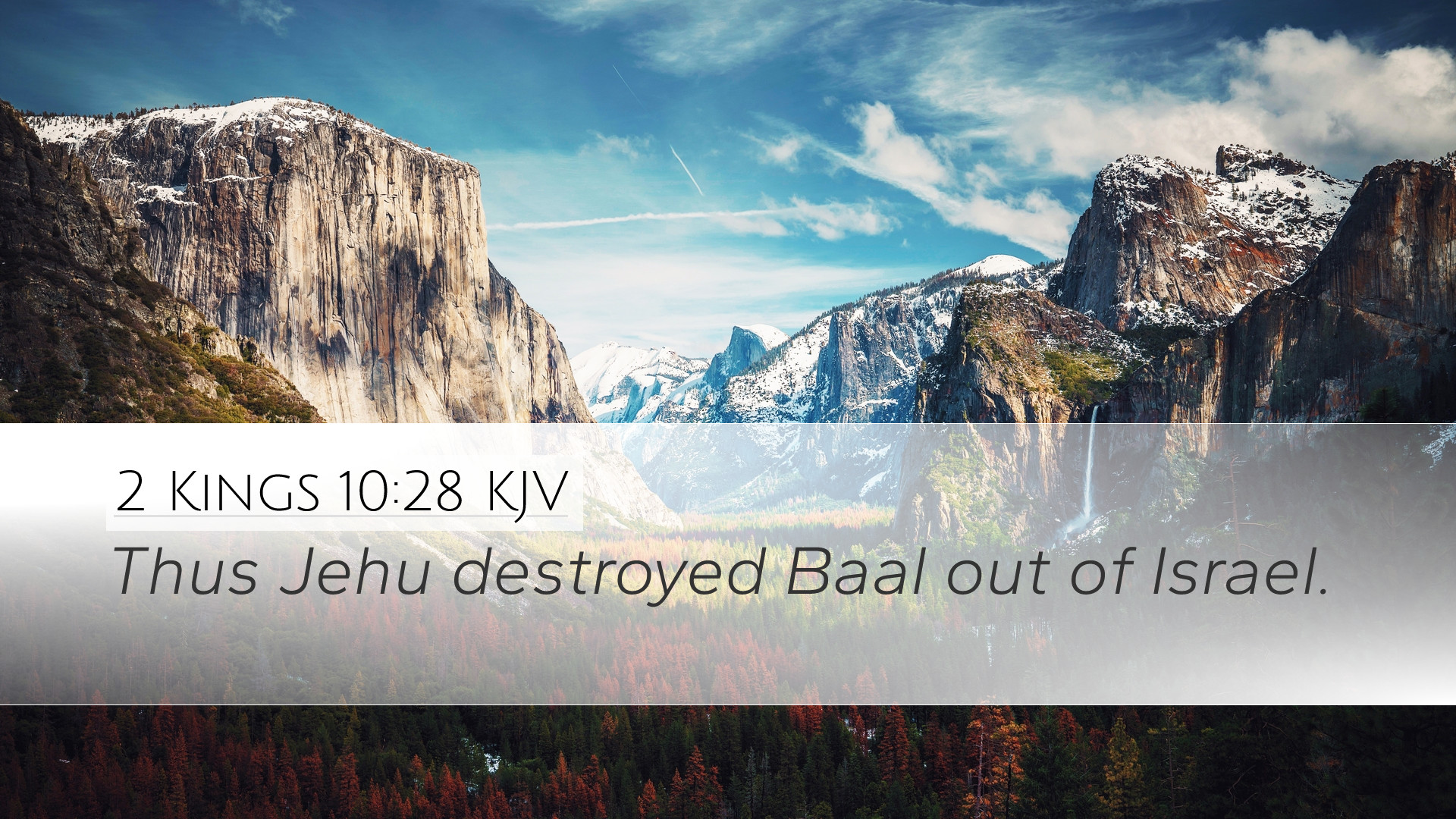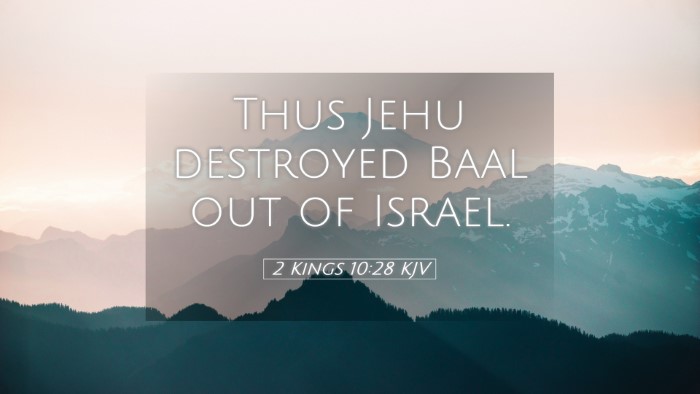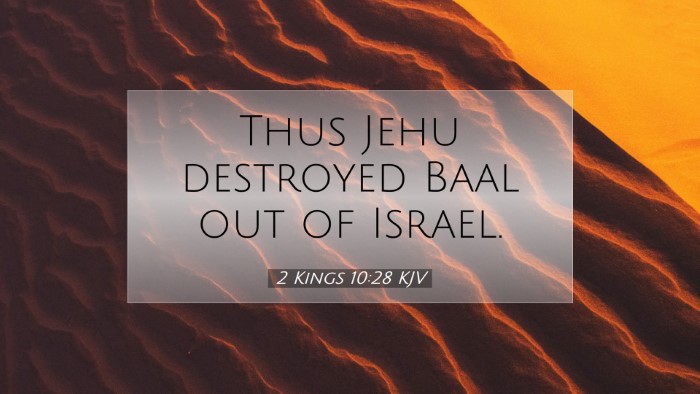Commentary on 2 Kings 10:28
Verse Text: "Thus Jehu destroyed Baal out of Israel."
Introduction
This verse marks a significant turning point in the history of Israel as it pertains to the eradication of Baal worship. Jehu's actions, as recorded in 2 Kings, reflect the fulfillment of divine prophecy and the zealous commitment to rid Israel of idolatry. In this commentary, we delve into insights from public domain scholars such as Matthew Henry, Albert Barnes, and Adam Clarke.
Historical Context
The background leading up to this moment is crucial for understanding the implications of Jehu’s campaign against Baal. The Northern Kingdom of Israel had been entrenched in idolatry, particularly the worship of Baal, prompted by the influence of Queen Jezebel and previous kings.
- Jehu's Anointing: Jehu was anointed king with the divine mission to execute judgment upon the house of Ahab, which had led Israel into corruption (see 1 Kings 19:16-17).
- Judgment Against Ahab: The prophecy given to Elijah regarding Ahab's lineage (1 Kings 21:21) set the stage for Jehu's violent purge of idolatry.
Exegesis of 2 Kings 10:28
The verse succinctly states Jehu’s triumph in dismantling Baal worship. This act can be construed as both physical destruction and spiritual purification, aiming to restore Israelite worship to Yahweh. Matthew Henry highlights the significance of this "destruction" and categorizes it as a divinely ordained act of righteousness.
- Literal Meaning: Jehu’s actions were not merely political but were conducted with religious fervor, underscoring the imperative to eliminate foreign gods and practices.
- Spiritual Implication: This cleansing of Baal illustrates the necessity for purity in worship and obedience to God’s commandments, a theme echoed throughout the Old Testament.
Theological Insights
The triumph over Baal worship not only signifies a victory over idolatry but also reveals profound truths about God's sovereignty and holiness. Albert Barnes emphasizes God's unwavering commitment to His covenant people and the swift judgment against sin and idolatry.
- God’s Sovereignty: Despite the tumultuous history and rebellion of Israel, God remains sovereign, working through capable leaders like Jehu to fulfill His purposes.
- Role of Zealous Leadership: Jehu's zealous leadership demonstrates that God often uses individuals with fervor and commitment to affect change.
Lessons for Today
The lessons derived from Jehu's destruction of Baal offer contemporary applications for individuals and communities seeking to uphold the true worship of God.
- Confronting Idolatry: Just as Jehu confronted physical idols, modern believers are called to identify and challenge contemporary idols that compete for loyalty—materialism, secularism, and moral relativism.
- Obedience to God: Jehu's commitment serves as a reminder for believers today to be vigilant and obedient to God's commands, rejecting any form of syncretism that dilutes worship.
- The Cost of Discipleship: Jehu’s ruthless approach underscores the call to discipleship that may involve dramatic shifts in lifestyle and priorities.
Conclusion
In conclusion, 2 Kings 10:28 stands as a powerful testament to the need for purity in worship and the lived experience of holiness among God’s people. The destruction of Baal worship provides rich material for theological reflection and practical application.
As the faithful reflect on Jehu's actions, may they be inspired to pursue a deeper, unyielding commitment to God, recognizing that true worship must remain uncompromised.


